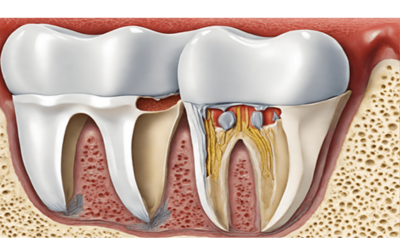Enquire Now
Redefining Smiles with Precision— in the Heart of Hyderabad.
Endodontic Surgery in Hyderabad, India
Experience world-class dental care at Dr. Jaydev Dental Clinic, your trusted destination for advanced endodontic surgery in Hyderabad, India. We specialize in treating both routine and complex cases—including retreatments, hidden canals, and persistent infections—using state-of-the-art microscopic techniques.
Led by Dr. Jaydev, a UK-trained specialist in microscopic endodontics and smile designing, our clinic delivers precision-driven care to patients from across India and around the world, ensuring comfort, safety, and long-term results. Whether you’re seeking relief from chronic dental pain or looking to preserve your natural teeth, you’re in expert hands.
With state-of-the-art equipment and a team of certified endodontists, we ensure world-class care for patients seeking top-quality dental solutions. Having performed over 7,200 successful root canals, we are committed to providing the finest care for those who value excellence in dental treatment.
Learn how endodontic surgery can save your smile. Don’t wait—book your consultation today with a skilled dentist in India.
Wondering what procedures might be proper for you? Here’s a breakdown of the most common types of endodontic treatments
What Endodontic Procedures Are Offered at Dr. Jaydev Dental Clinic?
Endodontics encompasses various procedures designed to treat issues within the tooth’s pulp and roots. Here are some common types:
Root Canal Treatment
This widely performed procedure involves eliminating infected or damaged pulp from within the tooth. The root canals are then thoroughly cleaned and sealed to stop future infections.

Retreatment (Re-endo)
If a tooth doesn’t heal properly after a root canal, retreatment may be necessary. This involves reopening the tooth, cleaning the root canals again, and resealing them.

Apicoectomy
An apicoectomy is performed when a root canal alone is not enough. It involves removing the tip of the root and any surrounding infected tissue to stop further infection.
Microscopic Root Canal Treatment
This procedure utilizes advanced microscopic techniques, allowing for precise treatment of complex root canal systems and improving the chances of successful outcomes.

Pulp Capping
In cases where a cavity has exposed the pulp, this treatment involves placing a protective material over the pulp to promote healing and prevent the need for a root canal.

Hemisection
For teeth with multiple roots, a hemisection involves removing one root along with the associated crown. This helps preserve the remaining healthy portion of the tooth.
Each of these procedures is tailored to address specific dental issues, ensuring optimal patient care and recovery.
The Role of Microscopes in Precision Endodontic Surgery
Microscopes have become an invaluable tool in modern endodontic surgery, allowing for unparalleled accuracy and precision during procedures. Their ability to magnify even the smallest details helps ensure more effective treatments with better outcomes.
Enhanced Magnification for Precision
Identifies Hidden Canal Systems
Minimally Invasive Techniques
Detects Fractures & Missed Canals
High Accuracy & Predictable Outcomes
Reduced Complications & Retreatments
Documented Treatment Process
Improved Patient Comfort During Procedures
Check out why endodontic surgery might be necessary and how it can save your tooth.
Reasons for Endodontic Surgery
Endodontic surgery may be necessary for several reasons, mainly when conventional root canal treatments are not enough. They include:
Persistent Infection
If an infection remains after a root canal, surgery may be required to remove the infected tissue and ensure complete healing.
Complex Root Anatomy
Teeth with unusual or complex root systems can make standard treatment difficult. Surgery can help access and treat hidden canals or difficult-to-reach areas.
Re-endo Needs
Sometimes, a tooth does not heal properly after an initial root canal. To resolve ongoing issues, retreatment through surgery may be needed.
Fractured Roots

A crack or fracture in the root can lead to infection or pain. Endodontic surgery can help address these issues and preserve the tooth.
Dental Trauma
Injury to a tooth may damage the pulp or roots, necessitating surgical intervention to restore dental health.
Failed Previous Treatment
If a failed endodontic treatment occurs, surgery may be necessary to remove infected tissue or properly seal the root canals.
Cysts or Abscesses
Cysts or abscesses at the root tip can indicate infection. Surgery can remove these problematic areas and promote healing.
Consult an endodontics and smile design specialist to save your teeth and enhance your smile. Schedule your dental treatment today.
Is endodontic surgery the right choice? Here are the key benefits you should know.
Benefits of Endodontic Surgery
Endodontic surgery offers several advantages, such as:
Preservation of natural teeth: Helps save teeth that might otherwise need extraction.
Treatment of complex cases: Addresses intricate issues that standard procedures can not resolve.
Pain relief: Provides significant relief from pain associated with dental issues.
Long-term success: Often results in durable solutions that improve overall dental health.
Improved oral health: Reduces the risk of infection and enhances the health of surrounding teeth and gums.
Restored functionality: Restores the tooth’s function, allowing for normal chewing and speaking.
Advanced techniques: Utilizes cutting-edge technology for precise and effective treatment.

Here’s a look at our personalized approach to ensure a successful endodontic surgery experience.
How does Dr. Jaydev Dental Clinic Approach Advanced Endodontic Care in Hyderabad?
At our clinic, we prioritize patient comfort and care during endodontist surgery. Here’s how we ensure a seamless experience:
Comprehensive evaluation: We start with a thorough examination to assess your dental condition. Our experienced endodontist in India utilizes advanced imaging techniques to understand the specific needs of your tooth.
Personalized treatment plans: Every case is unique. We develop personalized treatment plans that address your dental issues, ensuring the most effective approach for your needs.

Advanced techniques: Utilizing the latest technology, including microscopic techniques, we enhance precision during procedures, improving outcomes and reducing recovery times.
Patient education: We believe in empowering our patients. Our team takes the time to explain the procedure, expected results, and aftercare, ensuring you feel informed and confident.
Comfort and care: Your comfort is our priority. We provide a welcoming environment and use sedation options to help you feel relaxed during your surgery.
Follow-up care: After your treatment, we offer comprehensive follow-up care to monitor your recovery and address any concerns, ensuring a smooth healing process
Why Choose Us for Endodontic Surgery in Hyderabad, India?
Expertise since 15+ years
UK-certified endodontist team
Advanced technology
50,000+ patients successfully treated
Flexible payment options available
Guaranteed results with a focus on comfort
Have you ever wondered what happens during endodontic surgery? Let’s take you through the process step by step
Endodontic Surgery Procedure at Dr. Jaydev Dental Clinic
Pre-Surgery Steps
Consultation
The process begins with a thorough consultation to assess your dental condition and determine the need for surgery.
Imaging and diagnosis
Advanced imaging techniques, such as X-rays or 3D scans, are used to visualize the tooth’s internal structure and identify any issues.
Treatment plan
A personalized treatment plan is developed based on your needs, and the procedure and any concerns are discussed and addressed.
Preparation
On the day of surgery, you will receive local anesthesia to ensure comfort. Sedation options may also be offered for added relaxation.

During Surgery
Accessing the tooth
The dentist creates a small opening in the gum or tooth to access the root and affected tissue.
Cleaning and sealing
The root canals are cleaned, disinfected, and filled with a biocompatible material to prevent future infections.
Removing infected tissue
The infected pulp and tissue are carefully removed to eliminate the source of pain and infection.
Closing the access point
The opening is then sealed with stitches or a temporary filling to protect the area as it heals.
Post-Surgery Steps
Recovery instructions
After surgery, you will receive detailed post-operative care instructions, including pain management and oral hygiene guidelines.
Follow-up appointment
A follow-up visit is scheduled to monitor healing and ensure the procedure’s success.
Monitoring and care
During recovery, monitor symptoms and contact the clinic if you have concerns or experience unusual pain.
Get top-notch dental treatment in India tailored to your needs. Reach out to a trusted dental clinic today to schedule your consultation.
Frequently Asked Questions
How long does endodontic surgery take?
What are the symptoms that require endodontic surgery?
What is the recovery time after endodontic surgery?
What can I expect during the procedure?
During endodontic surgery, you can expect the following:
- Local anesthesia to numb the area,
- Followed by the removal of infected tissue around the tooth’s root
- The area is then cleaned, sealed, and sutured.
The procedure is generally pain-free, and your dentist will ensure you are comfortable throughout.
How do I choose the right endodontist in India?
Disclaimer: The information shared in this content is for educational purposes only and not for promotional use.

